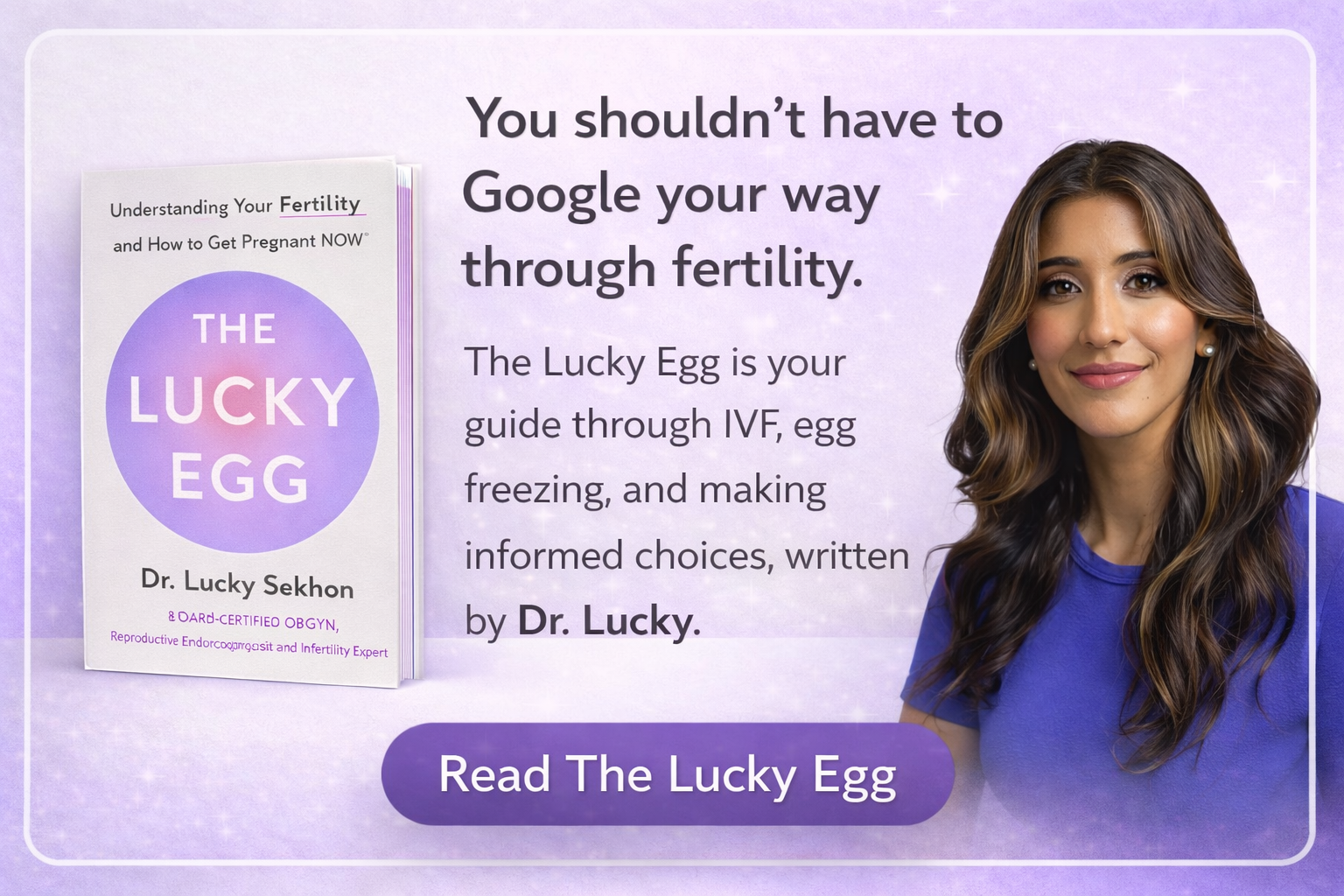Dr. Lucky’s 10 Essential Facts About IUI: What Everyone Should Know
Intrauterine insemination (IUI) is a widely used fertility treatment that offers hope to many couples trying to conceive. Despite being a less invasive and more affordable option compared to in vitro fertilization (IVF), IUI cycles come with their own set of considerations and nuances. My name is Dr. Lucky Sekhon and as a practicing Reproductive Endocrinologist here are my top 10 things to know about IUI cycles based on years of clinical experience and the latest research.
1. Persistence Pays Off
The success rate per IUI cycle is relatively low, with only a 10-20% chance of pregnancy for women under 35. However, this doesn’t mean you should lose hope after a single attempt. The cumulative probability of success improves with multiple tries. Each cycle is a new opportunity, and while it may take a few rounds, persistence can eventually pay off.
2. Know When to Move On
Just like in a game of poker, knowing when to fold is crucial. Studies have shown that for couples with unexplained infertility, if you haven’t conceived after six medicated IUI cycles, the odds of success start to plateau. Continuing beyond this point may not be the best use of time or resources. For couples over 35 or those desiring multiple children, it’s often reasonable to consider moving on after just 2-3 cycles. Transitioning to more advanced treatments, like IVF, may be a more effective strategy at this stage.
3. Combination Treatment is Key for Unexplained Infertility
For those dealing with unexplained infertility, the combination of fertility medications and IUI is crucial. Large clinical trials have demonstrated that using medications to stimulate ovulation, combined with IUI, significantly increases the chances of conception. Simply taking medications and attempting timed intercourse or doing a natural cycle IUI without medications does not improve success rates in these cases. However, natural cycle IUI is a reasonable approach for same-sex female couples under 35 or couples where sexual dysfunction is the primary challenge, as these individuals are often fertile but require assistance with sperm exposure.
4. Understand the Risk of Multiples
When medications are used to stimulate ovulation in IUI cycles, there is a 3-8% chance of conceiving twins or higher-order multiples. This risk is influenced by factors such as age and how your body responds to the medication. It’s crucial to have a clear plan with your doctor about how many mature follicles (eggs) you are comfortable with before deciding to cancel a cycle. The goal is to minimize the risk of multiples while still optimizing your chances of success.
5. It’s Okay to Keep Trying on Your Own
One of the great things about IUI is that it doesn’t preclude natural conception during the same cycle. I often encourage couples to continue trying to conceive on their own through intercourse in addition to the IUI. The more sperm in the reproductive tract, the better your chances of success. Whether the IUI or natural intercourse does the trick isn’t something you’ll ever know—and it doesn’t matter! The goal is a healthy pregnancy, and either route is valid.
6. IUI Failures Don’t Predict IVF Outcomes
If you’ve gone through several IUI cycles without success, it’s easy to feel discouraged. However, it’s important to remember that lack of success with IUI doesn’t correlate with your chances of success with IVF. IVF addresses issues that IUI cannot, such as fertilization and embryo quality, and can often lead to pregnancy even when IUI has failed. Don’t let a few unsuccessful IUI cycles diminish your hope for future treatments.
7. Consider Your Family Planning Goals
For women over 37 or 38 who desire more than two children, starting with IUI may not be the most strategic approach. IVF can offer a more effective way to conceive while also allowing for preimplantation genetic testing (PGT) of embryos and the option to freeze them for future use. This approach not only increases your chances of having a healthy pregnancy but also provides a form of fertility preservation for future family building.
8. IUI is Low-Risk and Relatively Painless
One of the appealing aspects of IUI is that it’s a low-risk and minimally invasive procedure. It involves a simple speculum exam, similar to a Pap smear, and can be done quickly in a clinic setting. There’s no need for anesthesia or pain medication, making it a more accessible option for many couples.
9. Treatment Paths Can Vary
While the typical progression for fertility treatment is IUI followed by IVF, this isn’t the only path. For some patients, particularly those who don’t respond well to IVF, reverting to IUI can still be an effective option. This is especially true for women who continue to ovulate and may benefit from a less aggressive approach. The key is to work closely with your fertility specialist to tailor a treatment plan that best suits your individual circumstances.
10. Success Rates Decrease with Age
IUI success rates are strongly tied to age. Women in their 20s and early 30s have about a 10-15% chance of success per cycle, while women between 35-40 see a decrease to 5-10%. For women over 40, the success rate drops to less than 5% per cycle. It’s also important to note that while sperm washing for IUI can help with insemination, it doesn’t reduce the risk of miscarriage, which is primarily linked to the age of the egg.
Conclusion
IUI can be a valuable tool in your fertility journey, especially when used strategically based on your individual situation. Understanding the nuances of IUI cycles—from when to persist to when it’s time to move on—can help you make informed decisions that align with your family-building goals.
If you are interested in learning more about fertility treatments such as IVF and IUI, please follow me on Instagram where I regularly post content on topics relating to fertility and reproductive health. If you are interested in booking a consultation with me, you can submit an appointment request here.
If you are interested in learning more about IUI treatments and how it is different than IVF, please check out the following article:


